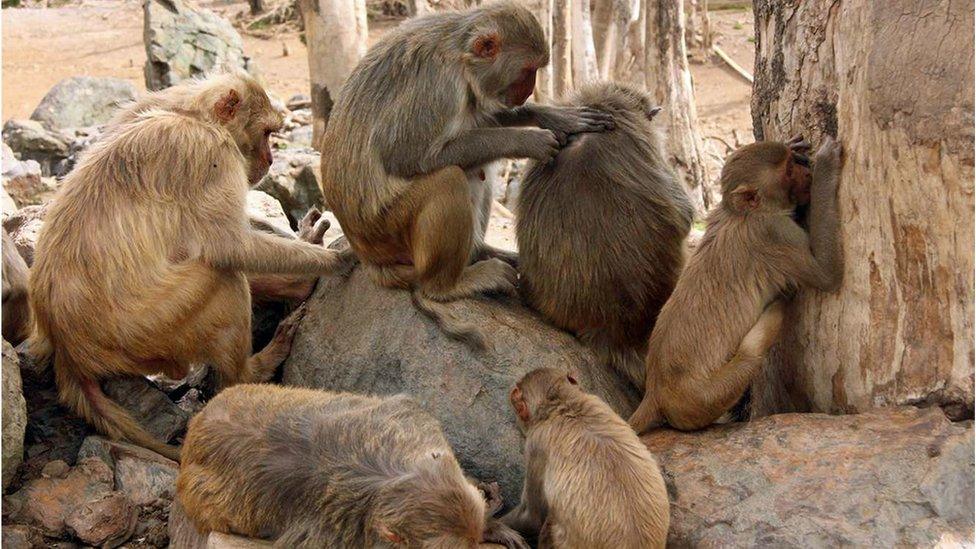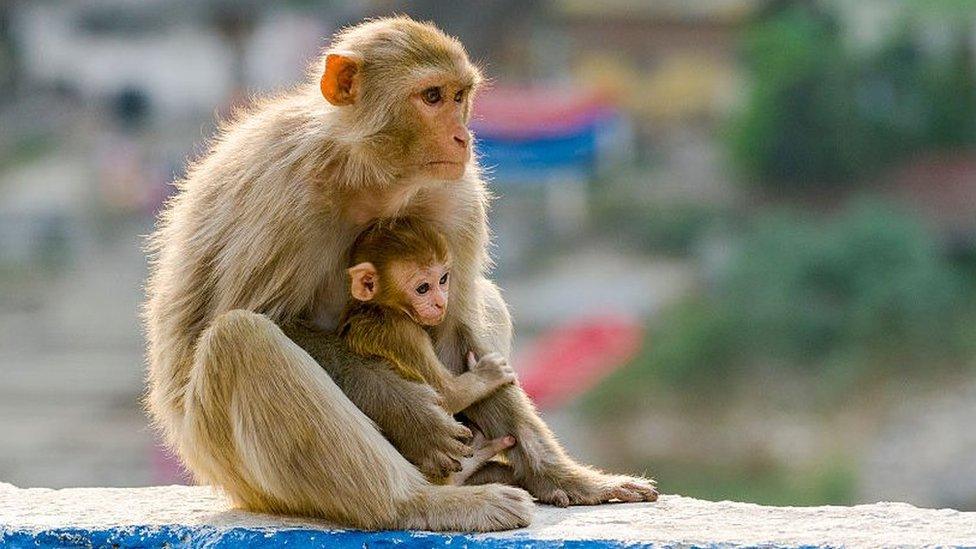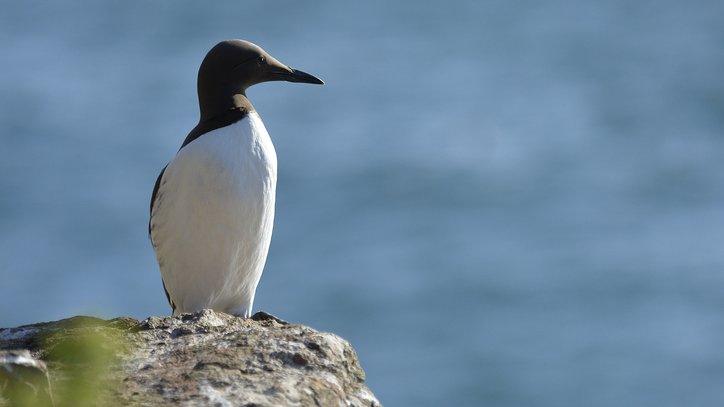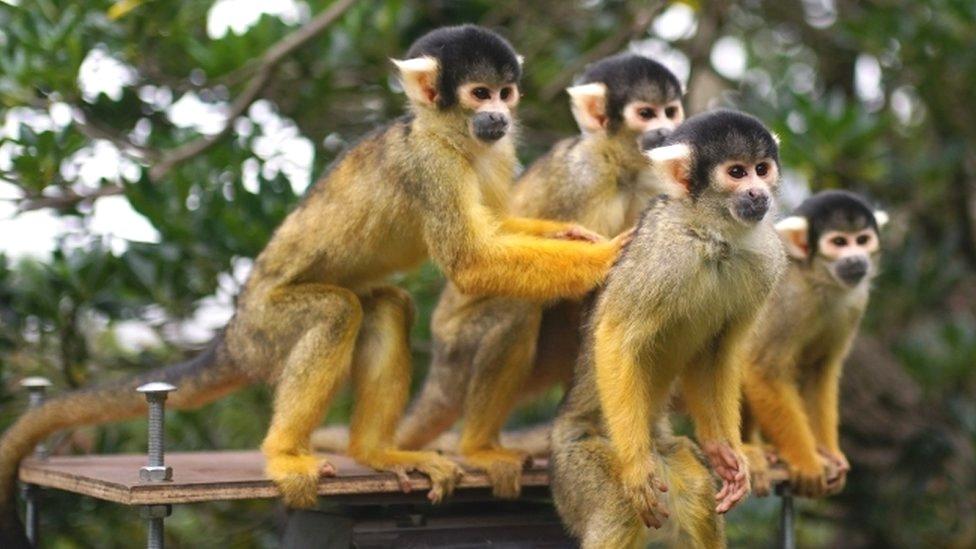How friendly monkeys who are more social are healthier
- Published
- comments

Monkeys with friends are in better health, according to a new study.
Scientists from the University of Oxford found that monkeys who take part in friendly social activities with other monkeys are more likely higher levels of helpful bacteria in their guts.
They followed 38 macaques monkeys on the island of Cayo Santiago, which is also known as 'Monkey Island' off Puerto Rico.
Dr Katerina Johnson from the University of Oxford said that "the community of microorganisms (or microbes for short) in our gut regulates the immune response".
Experts are investigating if these gut microbes may be linked to the social lives of all animals - including humans too.

The scientists looked at how many different monkeys each macaque monkey interacted with and how long they spent socialising with them.
The team also analysed the individual monkeys' gut bacteria.
Dr Karli Watson, from the University of Colorado Boulder, said: "Macaques are highly social animals and grooming is their main way of making and maintaining relationships and so provides a good sign that they are socialising."
They found:
A bacteria called Faecalibacterium (there are lots of this inside healthy human adults) was seen in the monkeys being more sociable.
The less sociable monkeys were found to have a higher level of Streptococcus bacteria, a group that also includes harmful microbes.
The experts also say there is another possibility: monkeys with fewer friends may be more stressed, which, in turn, affects the level of good microbes in their guts in a negative way.
- Published11 November 2022

- Published13 November 2022

- Published14 June 2022

